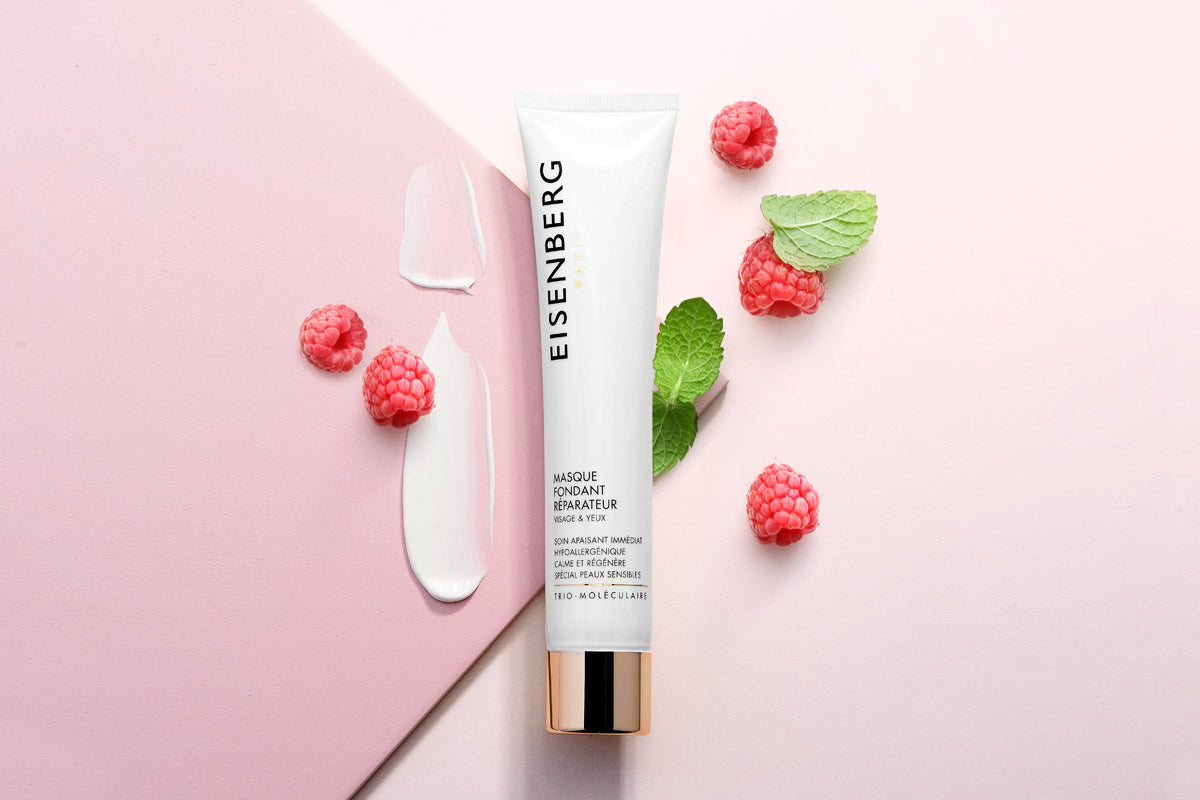Enter a valid discount code
We kindly invite you to activate your delivery coupon at the next step
Your cart is empty
Discover our bestsellersMinimal, refined and elegant, J.E. ROUGE® is a true symbol of sophistication.
Firming remodeling face and eye contour mask for tired skin. Instantly lifts and plumps.
An anti-ageing treatment with a deep, global regenerating action that acts on the skin's ageing mechanisms.
Highly concentrated serum to fight against double chin and loss of firmness. Ideal for all skin types and ages.
Light-textured creamy moisturiser, concentrated in active anti-ageing ingredients.
Ultra-concentrated eye serum: lifting, hydrating, and decongesting action! Corrects wrinkles, dark circles, and drooping eyelids. Fresh, toned, and smoothed eye contour!
A contrasting fresh and sensual oriental-fresh fragrance. A cheeky fragrance for those who dare.
This lightweight cream for face and eyes reshapes facial contours, plumps, firms, and lifts. Targets the 8 signs of ageing.
An instant anti-fatigue, anti-stress and anti-jet lag booster!
A daring, unforgettable Woody Amber Eau de Parfum for those who dare to break the rules.
For longer and curled lashes, perfectly defined for a spectacular look.
Like a prelude to a vibrant tale, leathery notes with hints of Pink Pepper intrigue at first. A Woody Amber Eau de Parfum for women.
Sparkling and sophisticated, Echo Lumineux resonates like a promise of eternity. A Chypre Floral Eau de Parfum for men.
From the chin to the chest the skin is toned and smoothed as if redesigned.
Enter a valid discount code
We kindly invite you to activate your delivery coupon at the next step



Melting night cream with Shea Butter and Bisabolol to rebalance and treat skin aggressed by stress and pollution.

Soft and delicate cream for sensitive and aggressed skin. Moisturises, protects and calms redness.

Creamy face and eye mask with a soft, melting texture that immediately soothes and repairs sensitive skin.
Sensitive skin refers to skin that easily reacts to products or external factors. Common signs include redness, itching, burning, or stinging. People with sensitive skin may notice these reactions more often than those with other skin types.
People with sensitive skin are born with this predisposition. Skin is more prone to reactions from various triggers, such as environmental factors, certain cosmetic ingredients, or other irritants. Redness, itching, burning, and dryness can be more common.
Sensitised Skin is usually caused by external factors and can happen to anyone, regardless of their inherent skin type. It is not a permanent condition but rather a reaction to certain triggers. Barrier function of the skin is compromised, leading to increased vulnerability to irritants. Over-exfoliation, harsh skincare products, environmental aggressors (like pollution and sun damage), stress, poor diet, certain medications, and other factors can cause sensitised skin. Symptoms are similar to those of sensitive skin such as: itching, burning, redness, and sometimes breakouts.
There are numerous potential triggers for sensitive skin reactions. These can include certain skincare or cosmetic products, fragrances, dyes, extreme weather conditions, air pollution, sun exposure, hormonal fluctuations, stress, and certain foods. Triggers might differ from one individual to the other, and sometimes it can be a combination of factors.
Sensitive skin can result from genetic predisposition or external factors like harsh weather, allergens, or certain skincare products. A compromised skin barrier can also become easily sensitive to external factors. Thus, it can develop at any age, even if you've never had skin sensitivity issues before.
Always check the product's label. Look for indications such as "for sensitive skin", "hypoallergenic", "fragrance-free", or "dermatologist-tested". However, these indications aren't guarantees, so always conduct a patch test before using a new product. Apply a small amount to a discreet area (like the inside of your forearm) and wait 24-48 hours to see if a reaction occurs.
It's essential to maintain a gentle skincare routine. Use mild, fragrance-free cleansers and moisturisers, and avoid products containing alcohol, sulfates, retinoids, harsh exfoliants or alpha-hydroxy acids unless otherwise directed by a dermatologist. Protect your skin from excessive sun exposure, and try to minimise exposure to known irritants. It's also advisable to keep your skincare routine simple, avoiding excessive products or frequent changes in products.
To calm facial redness, applying cold compress to affected areas or applying soothing moisturisers works effectively. Moisturisers or serums containing Raspberry leaf stem cell extract can soothe and fight redness whilst promoting skin healing. This extraordinary plant extract has excellent antioxidant and anti-inflammatory properties.
Some people might experience sensitive skin only during certain periods of their life, such as during hormonal changes or due to environmental factors. Others might have a lifelong predisposition to sensitive skin. While you can't necessarily "cure" sensitive skin, you can manage and reduce symptoms by identifying triggers, adapting your skincare routine, and seeking advice from a dermatologist when needed.
Remember, if you have concerns about your skin, always consult with a dermatologist or a qualified healthcare professional. They can provide personalised advice and recommendations.